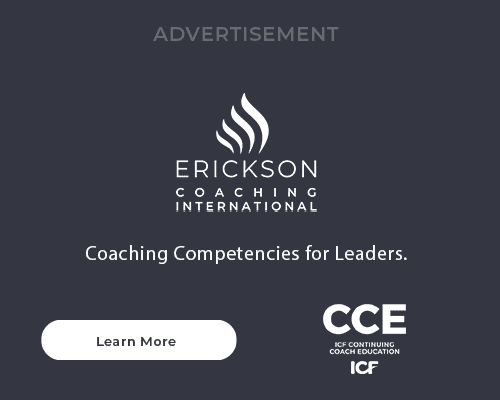The Art of Listening in Coaching
When we think of great communicators, we usually think of those who speak very well, have an impressive command of the language, and write eloquently. After years of teaching, coaching, and mentoring leaders and coaches, I have discovered that the most effective communicators are the best listeners. Listening is an essential skill and a fundamental aspect of communication that can significantly improve the quality of our relationships, both personally and professionally. Unfortunately, it is often undervalued and underutilized.
As coaches, the most difficult part of our role, and the toughest habit to shake off when we begin our training, is to listen to our clients and refrain from providing solutions. It requires a shift from being the source of knowledge and problem solver to being fully present and engaged with our clients, recognizing their inherent creativity, resourcefulness, and wholeness. It takes effort and discipline to shut off our ego and focus fully on the client.
To listen more effectively, we must cultivate our coaching presence. This involves creating a safe and supportive environment where the client feels heard, seen, and understood, while the coach remains fully attentive to the client’s needs, goals, beliefs, and emotions. This requires a shift in mindset from a task-focused approach to a person-focused approach, which requires a non-judgmental attitude, emotional awareness, flexibility in coaching methods to meet individual client needs, and empathy and compassion as the client undergoes different challenges throughout the course of the coaching engagement.
Here are some tips for developing your coaching presence and improving your listening skills:
1) Remember that Coaching is About the Client
Focus on the client’s needs and goals and avoid making the session about yourself or your opinions. The sincere desire to help the client naturally makes you curious and interested in discovering their aspirations and goals, as well as how they see themselves and the world around them. This leads to authentic presence and listening. Genuine concern for the well-being of a person means you are willing to sit with them where they are. Remember to be in the moment and trust that they can determine the answers and arrive at the solutions themselves.
2) Be Comfortable with Silence
When your client is silent, it usually means they are thinking or reflecting. This often leads to a realization or a mind shift. Resist the urge to fill up this space because you are not comfortable with silence, or you want to guide them somewhere. When you interrupt, you take away the opportunity for them to reach an “Aha” moment. While in silence, stay fully connected with your client. Your presence and silence provide a safe space for them to think and introspect without feeling pressured to provide an answer right away. Patiently wait for them as they sort things out in their mind, as this might lead them to a breakthrough.
3) Stop Analyzing and Overthinking
Overthinking and analyzing the client’s situation takes away your presence because you are no longer listening to the client but to your own thoughts. And when you are thinking of a solution, you are more likely to interrupt because you want to share what you have in mind. Make a conscious effort to listen without interrupting, utilizing all your senses to understand both verbal and nonverbal cues. You can then notice emotional shifts through changes in their tone of voice or facial expressions. Deep listening allows you to understand their thought patterns, aspirations, beliefs, values, assumptions, and fears, enabling you to reflect these back for increased awareness and exploration. This oftentimes leads to epiphanies. This can only be done when you are truly present, NOT thinking and trying to figure out the solution to their concern.
4) Recognize Your Own Biases
Acknowledge that you have biases and opinions that could influence your coaching. These could be based on your own upbringing, religious or political beliefs, educational background, exposure or experience to certain concepts, and various other factors. Be aware of how your biases may make your listening selective and your questions suggestive and leading. For example, you are coaching someone who enjoys working long hours, and you are biased against it. You may conclude your client does not have a good work-life balance and ask a question such as “How often do you take vacations?” when it may have nothing to do with the client’s concern. Once you catch yourself having biased opinions, manage it and remind yourself that it is not your responsibility as a coach to impose your values or influence how they should live their lives. Focus on the client’s desires, goals, needs, wants, and what they want to resolve within themselves. Recognize that they are the experts of their own experience, and your role is to help them make conscious choices and decisions based on what’s important to them.
5) Clear Yourself Before Coaching
How can you help your client achieve clarity when you yourself are distracted? Condition yourself to be in your best emotional and mental state before you coach so you can be fully present. Practice some clearing techniques like deep breathing, grounding/centering, talking to someone, taking a walk, stretching, or doing any activity that can help you release whatever baggage is pressing on your mind. And if you feel like you can’t be in your element, postpone your coaching session because proceeding with it would be a disservice to your client.
Ultimately, the desire to develop your coaching presence and become an effective listener should be driven by your love and genuine concern for the client’s growth and well-being.



